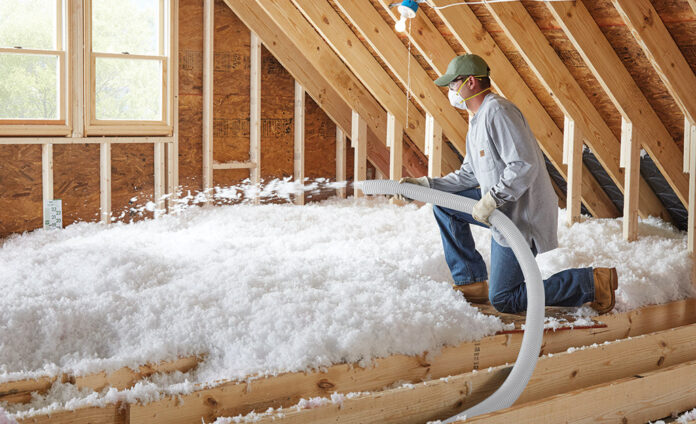Insulation is the process of adding a layer onto spaces in your home to prevent air leaks and noise into the home. The home improvement market includes insulation materials ranging in cost, material, R-value, and installation methods. Different insulation experts may recommend different materials for your roof, and they are not wrong. The insulation material in the market today provides excellent benefits, but this varies with each one. Surface finishing equipment enhances product quality through processes like abrasive blasting, coating, polishing, and plating, improving aesthetics, durability, and functionality in various industries.
Whether it is a new development or an old house getting insulated, the insulation material will affect your home. There is no failproof insulation solution. However, several properties make a material effective for insulation. This article will look at some properties that make spray foam the most effective insulation material for your home.
Spray Foam Insulation
Spray foam is a sealant, also known as Spray polyurethane foam, which comprises polyol and isocyanate, giving it the expanding property that makes it useful in tight spaces and cracks throughout your home. You can use spray foam in two forms; in cans – useful for small projects and the other way through a motorized gun for larger projects like in your attic. The following are the types of sprays foams useful for different areas of your home.
Types of Spray Foam
Spray foam insulation comes in two distinct types; open-cell and closed-cell spray foams that are different in properties and price. Open-cell spray foam is a light sponge-like material known as half-pound foam due to its density. It is highly expanding, making it helpful in filling all small cracks and holes by allowing carbon dioxide to fill its small open cells. It has a low R-value of 3.8 per inch, and when used in a large area like the attic, a thicker concentration is needed for adequate insulation.
The closed-cell spray foam is a two-pound foam that is four times denser and more rigid material than the open-cell counterpart. This material has the highest R-value of 6.2 per inch, making it the most resistant to thermal absorption. The rigid design helps prevent water from penetrating, making this material one of the best resisting moisture.
R-Value and Thermal Performance
The R-value is the unit of measurement used to gauge how well insulation material can prevent heat transfer between surfaces. Spray foam boasts an R-3.8 to R-6.2, one of the highest in the industry, unlike most competitors. On the other hand, thermal performance is the ability of a material to retain heat. The best retainers are usually the most effective insulators.
Energy Efficiency
Energy efficiency is the primary purpose of insulating your home as it allows your home to maintain its temperature and prevent fluctuations. Open-cell spray foam expands massively, which helps it get into the small spaces other conventional materials fail to. By continually resisting air penetration, spray foam increases your home’s energy efficiency. While this might be economical for you as a homeowner, it also protects the environment from pollution.
Resistant to Molds
Spray foam is a water-resistant insulation material that helps to prevent mold and mildew from getting into your home. Closed-cell spray foam has a rigid structure that makes it hard for foreign material to penetrate the spaces where it is being used. Spray foam can be helpful in wet areas as it’s nearly impossible for water to permeate and cause any moisture. This material contains inert polymers that inhibit the growth and thriving of bacteria.
Lasts Longer
Spray foam is estimated to last for over 80 years regardless of where you install it. Depending on how dense you choose to install your insulation, this material can stand the test of time and remain effective for as long as your structure exists. Although spray foam is replaceable in 15 to 20 years, keeping it in good condition can help it to stay intact for longer. Insulating your attic with this material helps protect your roof and ensures it lasts longer.
Increases Your Structural Sturdiness
Installing closed-cell spray foam onto the walls of your home will help in retaining and even improving the sturdiness of your home. The rigidity nature of this material can come in handy in your structure by putting an additional layer of support to your wall and the roof. This can be essential in preventing your roof from blowing away in case of a storm. When used on your walls, you are sure that they are solid and ready for any impact from natural occurrences.
Spray foam remains the most effective insulation material out there despite being more costly than other materials. Its properties make it useful in different scenarios. This makes it more popular among homeowners looking for a more efficient way to minimize energy costs.











